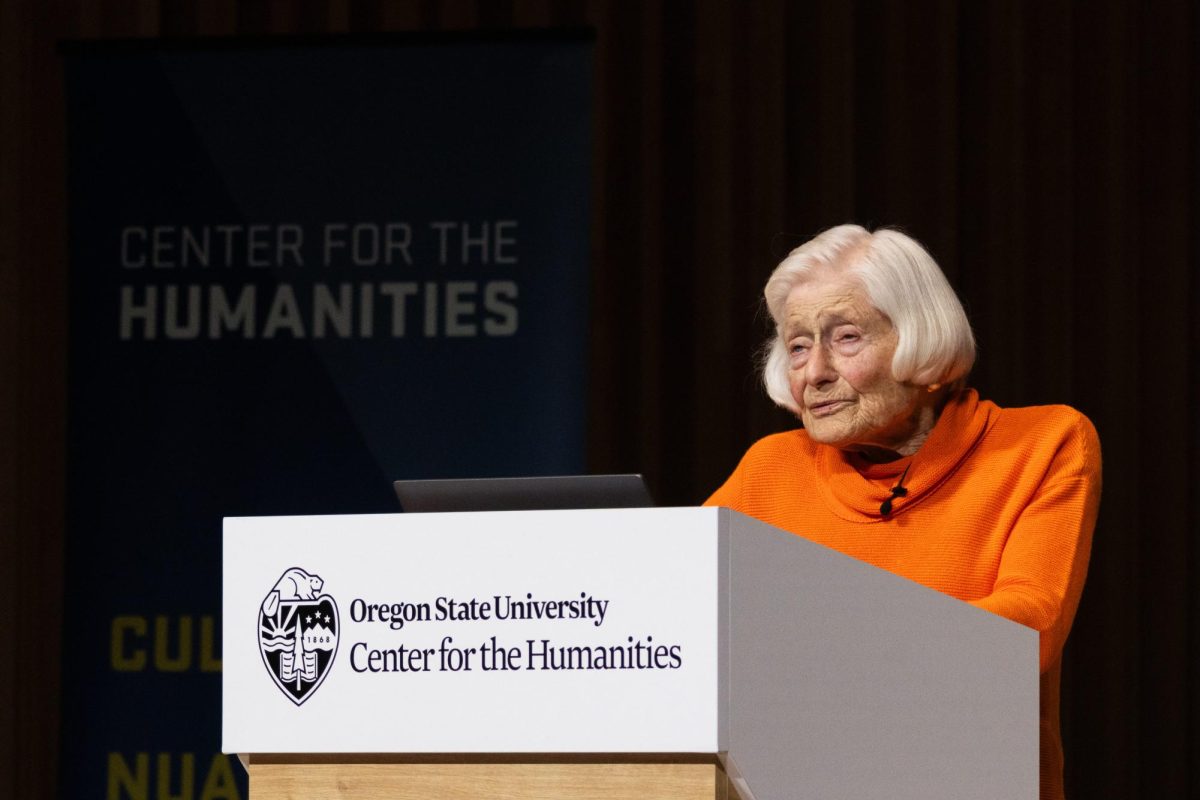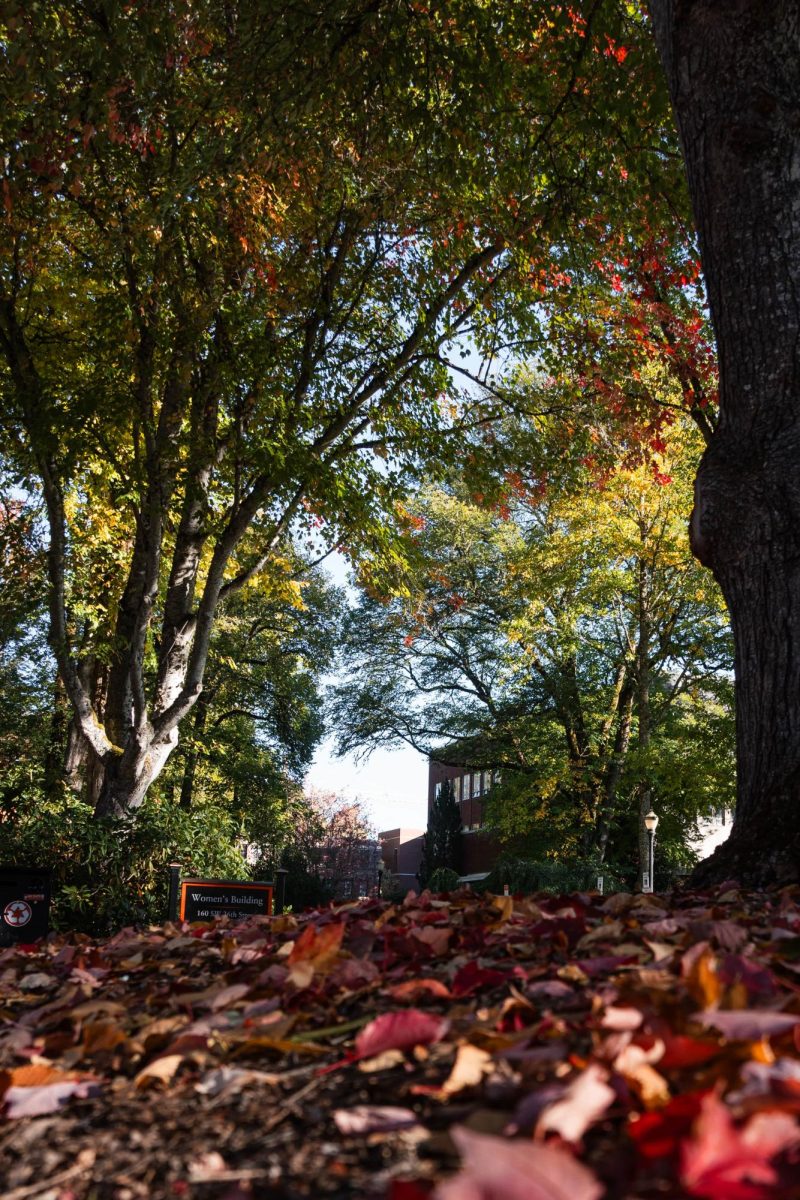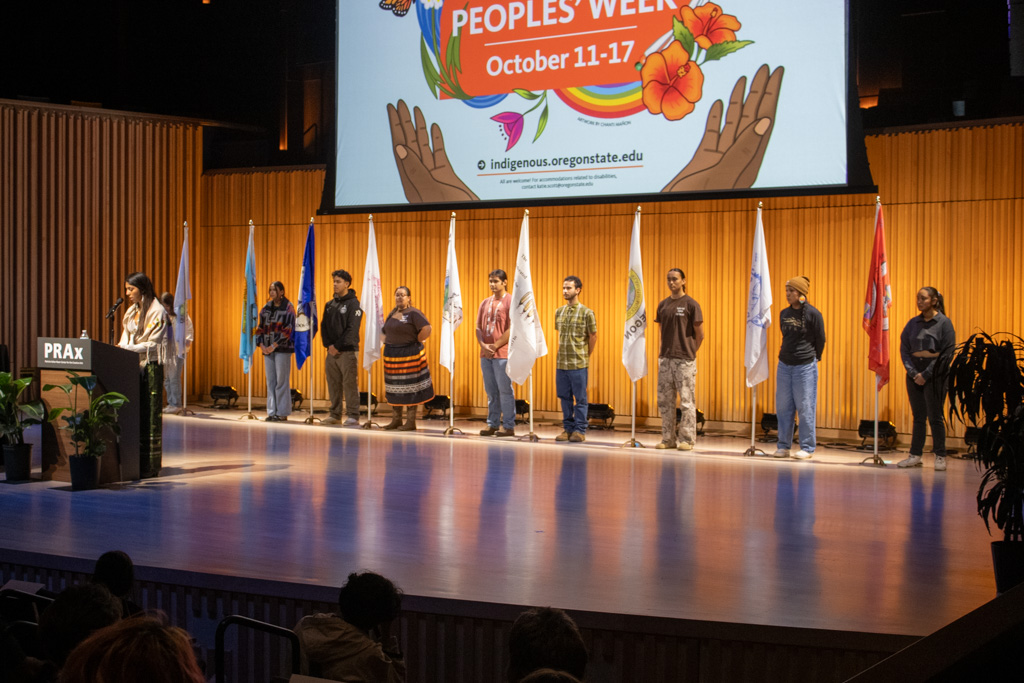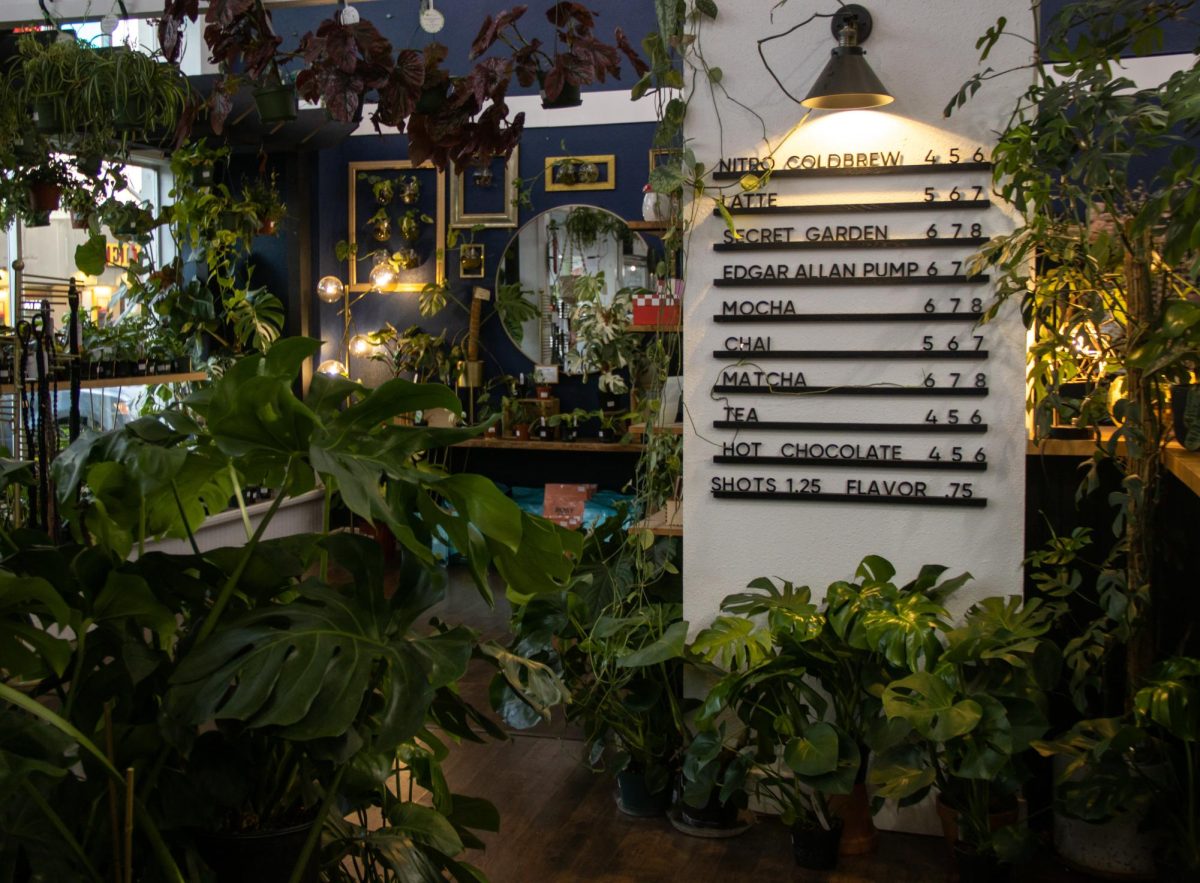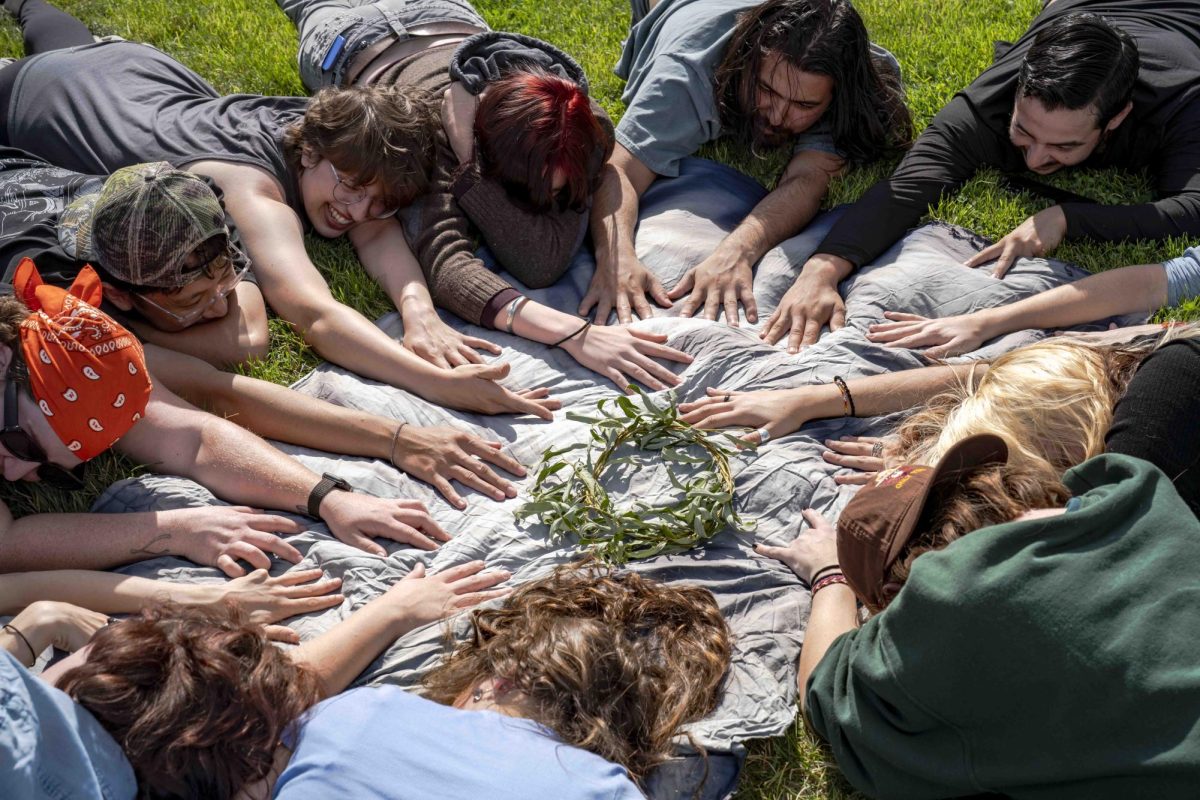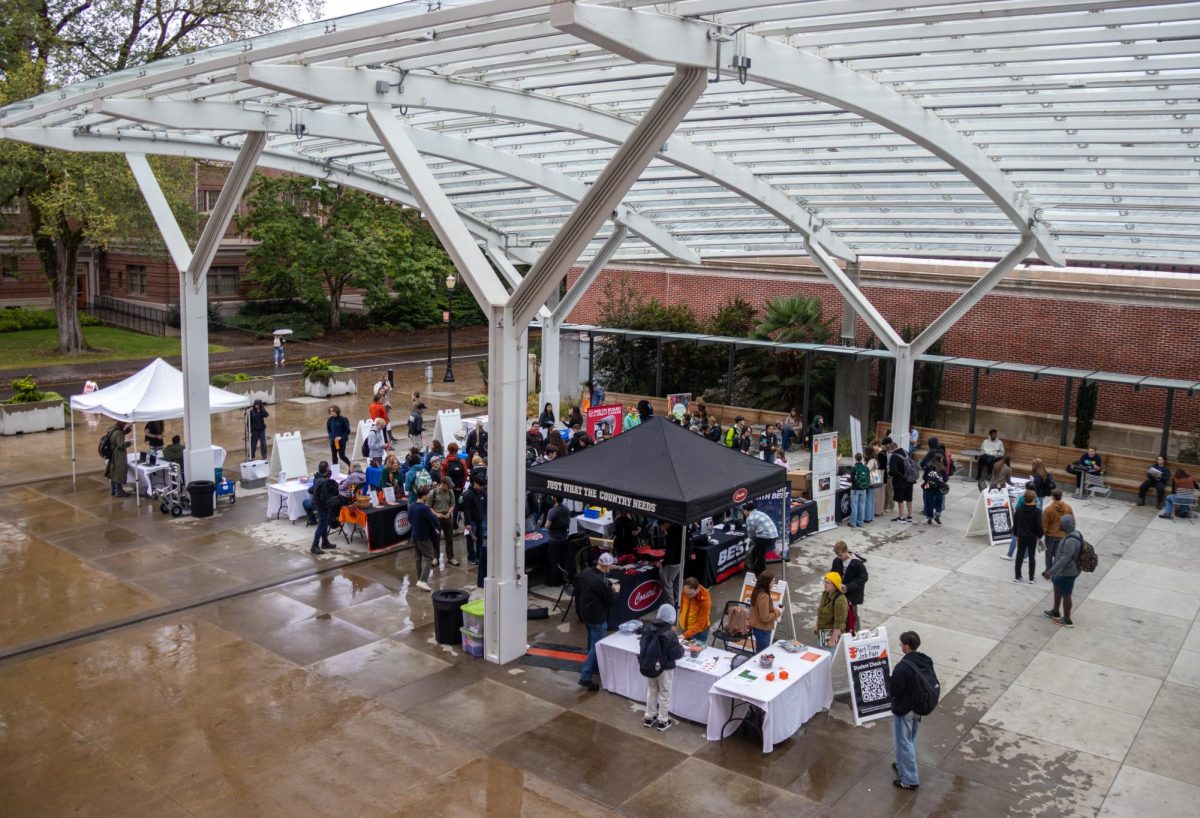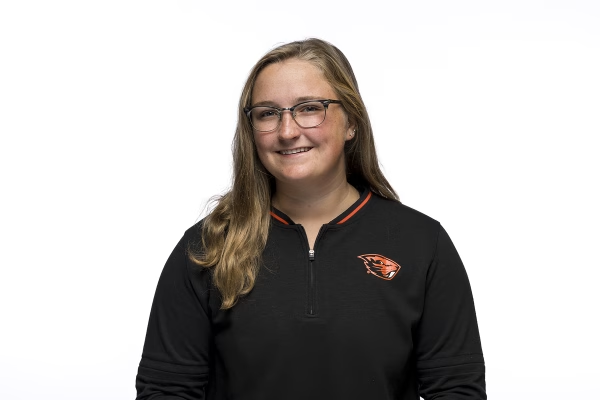On Monday, Irene Butter took to the stage at the Patricia Valian Reser Center for the Creative Arts at Oregon State University to share her story of hope and survival.
Butter, 94 years old, was born in Berlin in 1930 to a Jewish family and survived two concentration camps during World War II.
The event, “From Holocaust to Hope,” was part of OSU’s annual Holocaust Memorial Week and co-led by the Center for the Humanities.
“(OSU) strives to understand better Human Rights Violations … (the annual Holocaust Memorial Week) serves as a meaningful step to prevent genocide,” said Katherine Hubler, history senior instructor and moderator of the event.
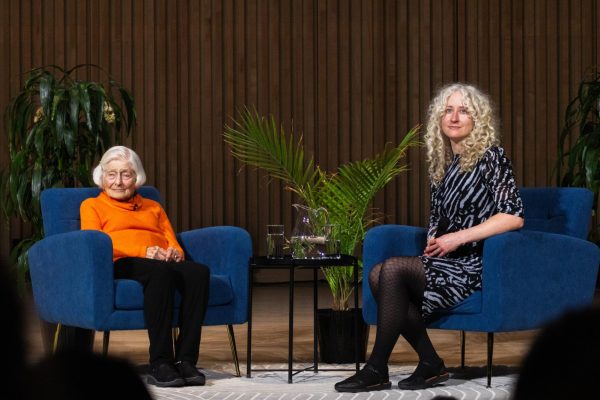
Butter shared her story and spoke of the parallels she is seeing between the political climate of today and that of the 1940s.
“My journey came from the deprivation of human rights and freedom,” Butter said. “Unfortunately, there are echoes in the present time of that leadership that hopefully will not repeat.”
Butter was just a child when her family fled Nazi Germany to the Netherlands, hoping to find safety. The Nazi invasion of the Netherlands in 1940 shattered that hope.
“My journey I was forced to take resulted in 7 locations,” Butter said.
Butter explained that her family went from Berlin, Germany to Amsterdam, the Netherlands, to Camp Westerbork, the Netherlands, to Camp Bergen-Belsen, Germany, to Biberach, Germany, to Switzerland and France, and then to Camp Jeanne d’Arc, Algeria.
Butter’s family was deported and imprisoned at the Westerbork Transit Camp and then to Bergen-Belsen concentration camp in 1944.
“Life in Bergen-Belsen was terrible,” Butter said.“When you said goodbye (to friends and family), you knew you would never see each other again.”
Butter explained that, in the Concentration Camps, there was a feeling of uncertainty every morning whether someone would get chosen to leave and go to another camp.
Butter recalled a quick connection with Anne Frank who was Butter’s childhood neighbor in Amsterdam, and was held in a neighboring section of the Westerbork camp.
“(Anne) couldn’t share her story,” Butter said, “Her voice was silenced forever. I was given the gift of survival … it was my duty, my responsibility (to share my story).”
This sense of duty has guided Butter’s work for decades. Now in her 90s, she continues to speak to students and communities around the country, warning against the dangers of dehumanization and silence.
“When you have a regime that targets certain people,” Butter said, “you have names like ‘murderers, criminals, cockroaches.’ Immigrants are given those labels in (the) current time.”
Butter recounted the heartbreaking moment her family narrowly escaped death through a rare Nazi prisoner exchange in early 1945. At the time, Butter and her family were imprisoned at Bergen-Belsen concentration camp and believed they were destined for Auschwitz.
In a last-minute twist of fate, Butter and her family were selected for a prisoner exchange organized between the Nazis and Allied forces, to trade Jewish prisoners for captured German nationals.
“It was about having the correct number to make the trade,” Butter said.
Butter’s father, through a connection with an unnamed Swedish intermediary, had obtained Ecuadorian passports for the family. The documents granted them the new classification: “Exchange Jews.” This status did not bring freedom immediately, but it spared them from extermination, as they were considered valuable for bargaining.
The exchange ultimately saved their lives — though, tragically, Butter’s father died shortly after their departure on the “train to freedom” from Bergen-Belsen at a train stop in Biberach, Germany.
“It hurts my heart to hear what is happening at our (U.S) borders, that children may never see their families again. It seems we haven’t learned our lesson since the Holocaust,” Butter said.
After earning a doctorate in economics, Butter became a professor at the University of Michigan and began her work as a peace activist and social justice leader.
“Each one of us can make a difference,” Butter said, after receiving a standing ovation from the crowd.
At the University of Michigan, Butter co-founded the Raoul Wallenberg Medal and Lecture Series. Wallenberg was a Swedish diplomat who, according to Butter, saved over 100,000 Jews during World War II. Through her lecture series, Butter highlights the efforts of individuals with similar characteristics for Wallenberg who have demonstrated courage.
In the early 2000s, Butter became the founding member of Zeitouna, an organization made for Jewish and Arab women and committed to engaging in honest conversations around identity and conflict.
“What we have in common by far outweighs our differences. We work for peace and justice,” Butter said.
Butter left the crowd with three of her lessons: refuse to become enemies, know that one person can make a difference and never be a bystander.
Butter left Tuesday morning to travel to Bergen-Belsen in commemoration of the 80th anniversary of the liberation of the concentration camp.

